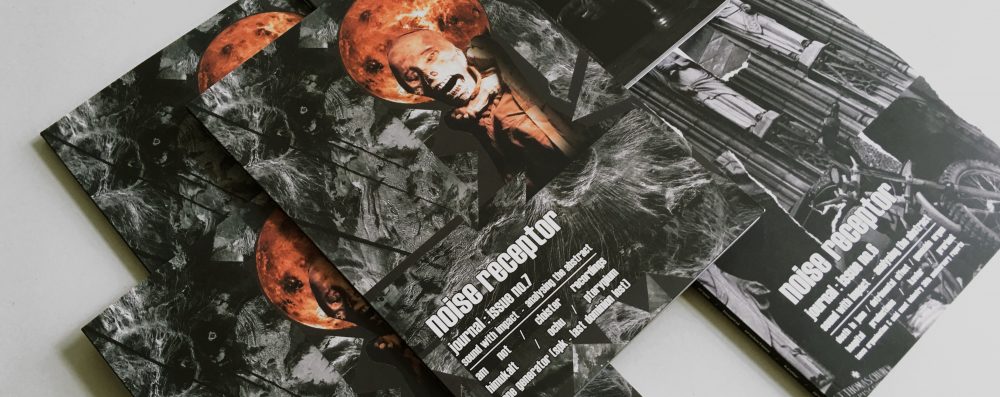Deaf Machine – Transistor CD Raubbau 2008
Deaf Machine – Found Noises CD Raubbau 2008
The label Rabbau seems to be similar to myself, in that they have a soft spot if not all out obsession for early 1990’s Swedish industrial obscurities. Deaf Machine is one such project whom were a short lived project of Mikael Svensson who was also a founding member of Megaptera before his departure leaving Peter Nyström to carry on. Deaf Machine also have a loose connection with the early era of the Cold Meat Industry label, noting that two of their tracks where included on ‘In the Butcher’s Backyard’ compilation from 1993. In order to prevent Deaf Machine from languishing in total obscurity, Raubbau have taken the initiative to release the complete recordings of Deaf Machine (spanning 2 separate CD’s).
‘Transistor’ was the first recording from the project and given the original tape was issued in 1992 in only 10 copies it gives an indication of exactly how obscure the project was and no doubt this re-release will be the means for many to hear this music for the first time. Looking back at the context of when this material was released, this was during a time when the Swedish death industrial sound was in its infancy and its key hallmarks were still being bedded down. Likewise given its obscure muffled sound, and occasional scattered micro-tonal elements, there is partial a degree of affinity here with a ‘post-mortem’ style. Thus ‘Transistor’ inhabits a loose analog sound, primarily built on fuzzed out radio static, cavernous bass addled tones, morbid tonal pulsations and slow thumping industrial rhythms, whilst on occasion radio songs and news reports randomly bleed into the mix. Given the newly designed cover imagery features ice covered plants and frozen landscapes, it is a suitable representation of the cold industrial soundscapes found within. The cover also features liner notes include text provided by scene notables Jason Mantis, Kyle Wright and Bauke van der Wal (among others) which provides context to the early impact of the group.
The second CD ‘Found Noises’ functions to collect together all remaining recordings from the group, which includes: 5 tracks from a 1992 split tape with Instant Cold Commando (2 of these tracks were also featured on the Cold Meat Industry ‘In The Butchers Backyard’ compilation); 1 track from 1995 on Harmonie’s Le Cénacle cassette compilation; 1 track from 1994 on Slaughter Productions Death Odors CD compilation; and 1 unreleased track (year unlisted). For the sound of ‘Found Noises’ it follows the established stylistic template, however has been slightly honed in focus and execution to inhabit a darker and more forceful hue (whereas ‘Transistor’ was slightly more experimental in guise). Radio chatter is still sporadically used, but the darker sound is augmented with garbled, chanted vocals and slow thrummed bass to bulk out the lower end of the sound. ‘Reaction’ is a particular stand-out, with it muffled echoed soundscape and semi-buried maudlin synth line, while the movie dialogue samples and grinding death industrial sounds of ‘At The End’ and ‘Silent Intruder’ also draws parallels to the early works of Megaptera. ‘Injection’ is the most divergent piece on offer with its focused electronic programming, while the final album track (and seemingly the final recording for the project) comes in the form of ‘Final Destination, which was originally featured on the now classic ‘Death Odors compilation. Here the extended track is a great example of a mechanically driven, rhythmic death industrial soundscape, with floating layered synths etc. and showed much promise from a project which for whatever reason simply did not continue further (the cover includes a short interview with Mikael Svensson which covers the reason why).
With both CD’s representing a history lesson on one of the obscurest projects of the Swedish death industrial sound, Raubbau should be commended for resurrecting these recordings and issuing these albums for both posterity’s sake and general listening pleasure.




